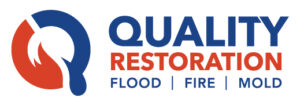IMPORTANT TIPS ON WHAT RENTAL PROPERTY TO BUY TO REDUCE RISK AND HASSLE
When an investor looks to purchase a rental property, they will need to evaluate what type of property they should buy. Here I will teach you how to simplify this process while getting the best return on your investment. These important tips on what rental property to buy, will reduce risk and hassle for landlords and help you sleep better at night.
The Spreadsheet Slow-Down
I have seen investors, who in an effort to be thorough, will take great care to seek out as much information as they can regarding all the factors that may affect the cashflow of a potential rental property, put it in a spreadsheet, read over it again and again, until they finally make a decision. Although there is wisdom in doing this, there is the risk that a delay in decision making will lead to a missed opportunity to purchase a great property. In this video, I will also teach you how to make the decision process short and easy so that you can feel confident in snatching that great investment property before another wise investor picks it up first.
The important thing to know is that while a property may look good on paper based on the obvious factors of square footage, number of bedrooms, and mortgage cost compared to its rental income, there are always unknown variables that can cost you much more than you accounted for. Such things include hidden maintenance issues, vacancy time, changing market conditions, problem tenants, and the list goes on. These things can’t always be accounted for on a spreadsheet and can have a big impact on the success of your investment property.
A Better Strategy
A better strategy is to focus your search on properties that have a reduced number of variables. This way much of the decision making is done before you even start looking for a property. Once you do this, then do a quick calculation of the fixed expenses, such as: mortgage payment, HOA fee, and management fee and compare those with the expected rent income. If the numbers work out, then you can quickly move on it before someone else does.
So, what type of properties have a reduced number of variables? Let me first mention those with a high number of variables. Older homes, especially older multiplexes, usually have high maintenance costs, high turn over, lower rents, odd and poorly done improvements, and a history of improper repairs. I’ve seen many investors buy such properties because initially they look good on a financial spreadsheet, but with all the variables coming into play later, the owner often ends up spending much more on repairs, upkeep, upgrades and yard care than they anticipated. Even if the home is updated and in great condition, it’s still in an old neighborhood. This drags its value and appeal down. This is important because when looking for tenants, I find that those willing to live in areas that are older and rundown, are more often the same people that don’t pass the application screening process. This leads to longer vacancy times and that is a huge expense. If a tenant does pass, it is often just barely. This can translate into a higher risk of unpaid rent, evictions, drug abuse, and property damage. In addition older homes don’t appreciate as well as something newer. Both the rents and the property value of an older home is slower to appreciate in a growing market so over time your investment is less profitable than you would have with something newer.
Benefits of a Newer Property
In contrast, I find newer properties are more predictable. It is usually quick and easy to find a good quality tenant. This is especially the case with newer condos and townhomes because despite having an HOA fee most of the property expense variables mentioned previously go away or are drastically reduced. For example: there is much less exposure to maintenance costs. With condos and townhomes, owners are generally not responsible for the roof, lawn, trees, sprinklers, water, fencing, siding, and such things. When considering those maintenance costs, an HOA Fee seems more like a good deal instead of an extra expense. Plus many condos and townhomes have the added appeal of community, clubhouse, pool, playgrounds, picnic areas, ball courts, and more. Drawing in more tenants will reduce your vacancy time and help you find the right tenant. Because more of your expenses are fixed and there are less variables, condos and townhomes are much more predictable. This includes knowing what they will rent for. In addition, an important benefit that is often overlooked by landlords is that an HOA is a second set of eyes on your investment property and early detection of a problem can save you money.
The challenge in deciding between older homes vs newer condos and townhomes is seeing past the spreadsheet. Often the older properties show a better immediate cash flow but will eventually result in more expense and less growth. The newer homes and HOA properties can initially show a negative cashflow, but are more likely to have a higher return down the road.
You might wonder if a negative cash flowing property is a good idea. To answer why putting too much emphasis on cashflow could cost you tens of thousands of dollars, see our blog post “Should an Investment Property Always Cash Flow?” at this address and listed in the comments below.
When looking at the big picture, the long term benefits of investing in a newer property, especially condos and townhomes, make a much more stable investment with better growth than older properties and houses. At Kasteel Property Management we do more than just watch your rental property. We protect it, cultivate it, and help your investment grow.





